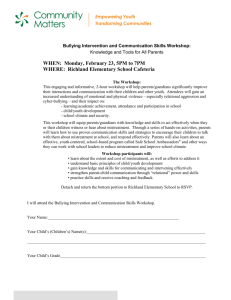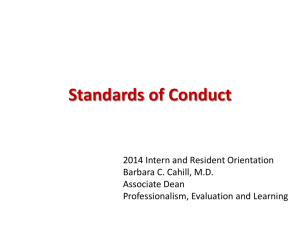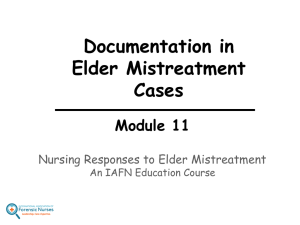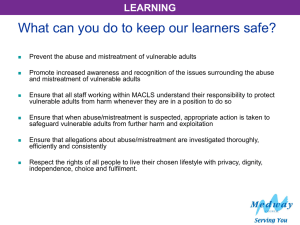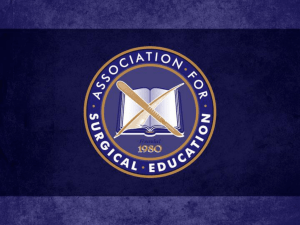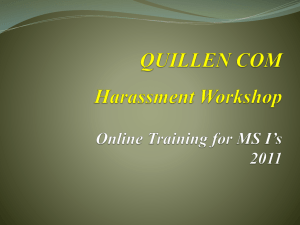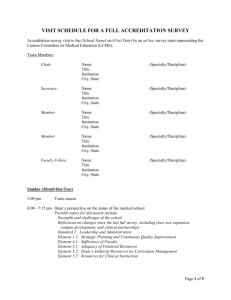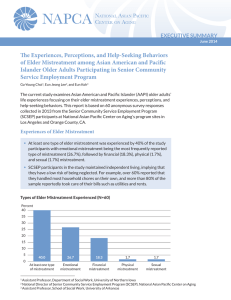Student Mistreatment PolicyCategory
advertisement
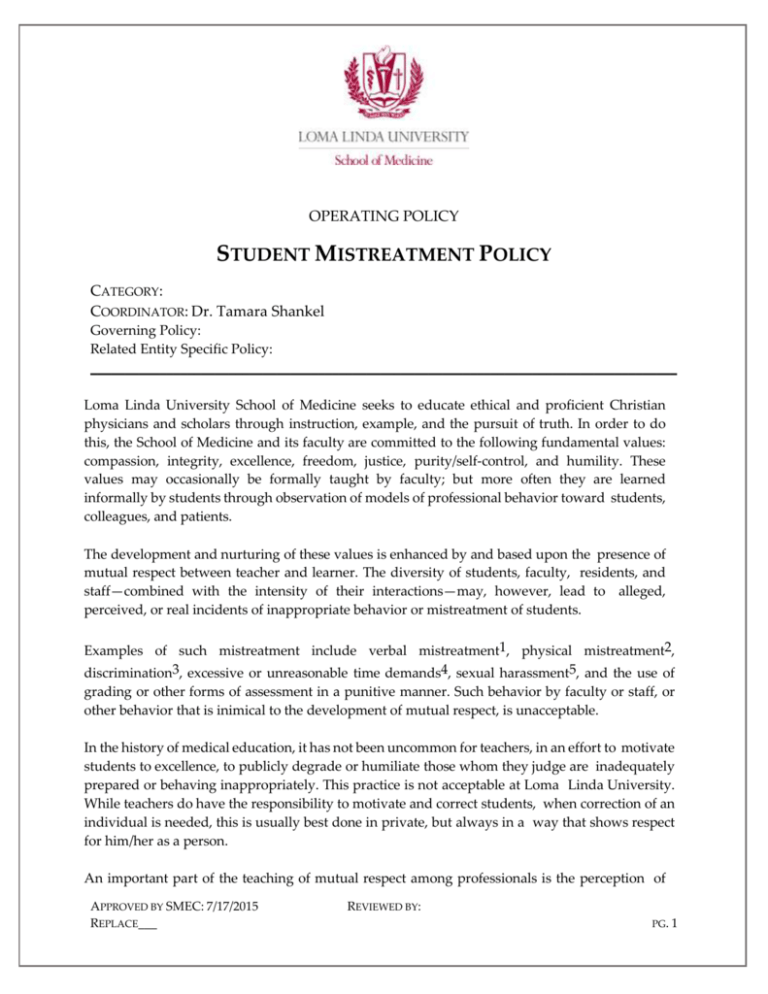
OPERATING POLICY STUDENT MISTREATMENT POLICY CATEGORY: COORDINATOR: Dr. Tamara Shankel Governing Policy: Related Entity Specific Policy: _____________________________________________________________________________________ Loma Linda University School of Medicine seeks to educate ethical and proficient Christian physicians and scholars through instruction, example, and the pursuit of truth. In order to do this, the School of Medicine and its faculty are committed to the following fundamental values: compassion, integrity, excellence, freedom, justice, purity/self-control, and humility. These values may occasionally be formally taught by faculty; but more often they are learned informally by students through observation of models of professional behavior toward students, colleagues, and patients. The development and nurturing of these values is enhanced by and based upon the presence of mutual respect between teacher and learner. The diversity of students, faculty, residents, and staff—combined with the intensity of their interactions—may, however, lead to alleged, perceived, or real incidents of inappropriate behavior or mistreatment of students. Examples of such mistreatment include verbal mistreatment1, physical mistreatment2, discrimination3, excessive or unreasonable time demands4, sexual harassment5, and the use of grading or other forms of assessment in a punitive manner. Such behavior by faculty or staff, or other behavior that is inimical to the development of mutual respect, is unacceptable. In the history of medical education, it has not been uncommon for teachers, in an effort to motivate students to excellence, to publicly degrade or humiliate those whom they judge are inadequately prepared or behaving inappropriately. This practice is not acceptable at Loma Linda University. While teachers do have the responsibility to motivate and correct students, when correction of an individual is needed, this is usually best done in private, but always in a way that shows respect for him/her as a person. An important part of the teaching of mutual respect among professionals is the perception of APPROVED BY SMEC: 7/17/2015 REPLACE___ REVIEWED BY: PG. 1 students as they observe faculty in their interactions with each other. Therefore, faculty should avoid inappropriate behavior or mistreatment of other professionals and staff. This includes the avoidance of derogatory remarks about or attitudes toward individual colleagues, services, or departments. Students also learn professional behavior and demeanor by observing their teachers as they interact with patients. Such professional interactions should always be courteous and respectful. Respect for individuals includes, but is not limited to, such things as punctuality, thoughtfulness, mindfulness of personal space; as well as manner and mode of address, appropriately modest draping, tone and content of verbal interchanges, and body language. In addition, discussion of patients out of their hearing should continue to show the same degree of respect and should not include contemptuous, derogatory, judgmental, or demeaning remarks. If a medical student expresses an unwillingness to participate in an aspect of training or patient care as a matter of conscience, that stance should be explored in a nonjudgmental manner to ensure that the teacher and student fully understand the issue. The student’s position on matters of conscience should be honored without academic or personal penalty, as long as it does not interfere with the welfare of the patient and the overall educational goals of Loma Linda University School of Medicine. Any student who feels he/she may have experienced or observed mistreatment or unprofessional behavior by residents, faculty or staff in violation of these standards of behavior is encouraged to report their concerns to one of the individuals below. Reports of unprofessional treatment should be made to the School of Medicine Administration. Reports of sexual harassment or any violation of the University’s Title IX policy (as found in section V of the Student Handbook) should either be made to one of the administrators listed below or directly to the LLU Title IX officer. Within the School of Medicine, mistreatment can be reported to the following administrators: the vice dean for academic affairs (Tamara Thomas. M.D.); the senior associate dean for medical student education (Leonard Werner, M.D.); the associate dean for clinical education (Tamara Shankel, M.D.); the associate dean for student affairs (Henry Lamberton, Psy.D.); or the associate dean for basic sciences and translational research (Penny Duerksen-Hughes, Ph.D.). The Title IX officer may be contacted by calling Employee Relations at (909) 651-4048 or directly at (909) 651-4079. Verbal or nonverbal mistreatment—includes: a. shouting, hostility, profanity, or offensive gestures; and/or b. repeated or blatant conduct directed toward any person, which is intended to insult or stigmatize that person. 2 Physical mistreatment—includes physical punishment such as hitting, slapping, pushing or kicking; the threat of physical punishment; and intentionally or negligently placing another at risk of physical harm. 3 Discrimination—includes disparate treatment based on gender, age, ethnicity, race, disability, or sexual orientation that stigmatizes or degrades that person. 4 Unreasonable time demands—includes: a. requiring a student to perform personal services, such as shopping or babysitting; and/or b. requiring a student to perform menial tasks with the intent to humiliate the student. 5 Sexual harassment—see “Policy Prohibiting Sexual Misconduct and Discrimination on the Basis of Sex (Title IX)” in the University Policy section of the Student Handbook which is available online. If the APPROVED BY SMEC: 7/17/2015 REVIEWED BY: REPLACE___ PG. 2 1 mistreatment involves sexual harassment, the procedures of this policy must be followed. APPROVED BY SMEC: 7/17/2015 REPLACE___ REVIEWED BY: PG. 3
